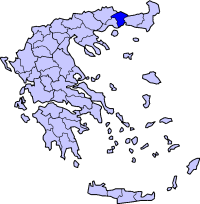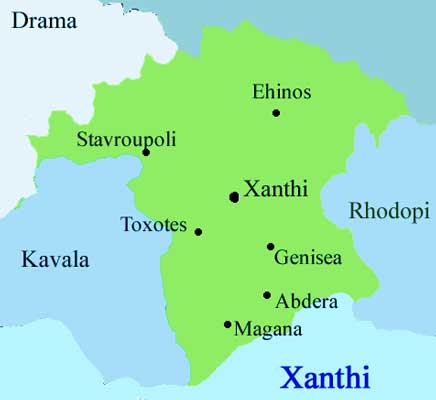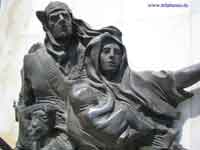|
|
Periphery: East Macedonia and Thrace
Xanthi (Greek: Ξάνθη, Turkish: İskeçe) is a city in northern Greece, in the East Macedonia and Thrace periphery. It is the capital of Xanthi Prefecture. History Known references to Xanthi (Ξάνθη), or Xanthia (Ξάνθεια), date back to 879 BC. It began as a small village and experienced all the tumultuous periods of the history of Thrace, such as raidings, disasters, race conflicts, civil wars. The population of the region of Xanthi had dwindled down to almost nothing and everything had been destroyed. This was the situation when the Ottomans arrived at the region. As a result, the Ottomans brought settlers from the depths of Asia Minor, which is how Genisea (Γενισέα) was created, while Oreo (Ωραίο) and Xanthi remained mainly Greek and Christian centres. By 1715 Xanthi, as well as Genisea, became renowned for its tobacco quality. Many foreign sightseers travelled throughout the region and described both the life and struggles of the locals. Tobacco commerce throughout Europe led Xanthi into a course of prosperity. In March and April of 1829 two earthquakes literally levelled the city, however played a decisive role in the further developments. The city's re-building immediately got underway. In 1870 the city of Genisea was burned down and thus all of the agencies and services were transferred to Xanthi which, at that time, had a population of about 10000 inhabitants. In 1891, the railroad line was established near the city, while further economic development led to the founding of schools and associations. The Bulgarians seized the city of Xanthi in 1912, but after a period of eight months was freed by the Greek army. Shortly thereafter, the city was once again captured by the Bulgarian forces and remained under their control until the end of World War II. Western Thrace (Δυτική Θράκη), and thus Xanthi, became a permanent part of Greece in 1919-1920, as a result of lengthy diplomatic manoeuvres and struggles ([Municipality of Xanthi]).
City Hall Modern Day Nowadays Xanthi is a modern Greek beautiful city, rich in history, traditions and customs, and with many attractions for the visitors (incl. the surrounding areas). It is a multi-cultural place where people, both christians and muslims, live in harmony. It is worth visiting the city during the Carnival (Καρναβάλι) (either February or March as dates change) and during the Old Town Festival (Γιορτές Παλιάς Πόλης) (beginning of September). Also do not miss the Xanthi Bazaar (Παζάρι) every Saturday. Xanthi is "The city of the thousand colours".
University
Sporting teams
Primary and Secondary divisions A and B' Ethniki
Famous inhabitants of Xanthi
Twinnings
Links
Retrieved from "http://en.wikipedia.org/"
 |
|||||||||||||||||||||||||||||||||||||||||||||||||
|
|





